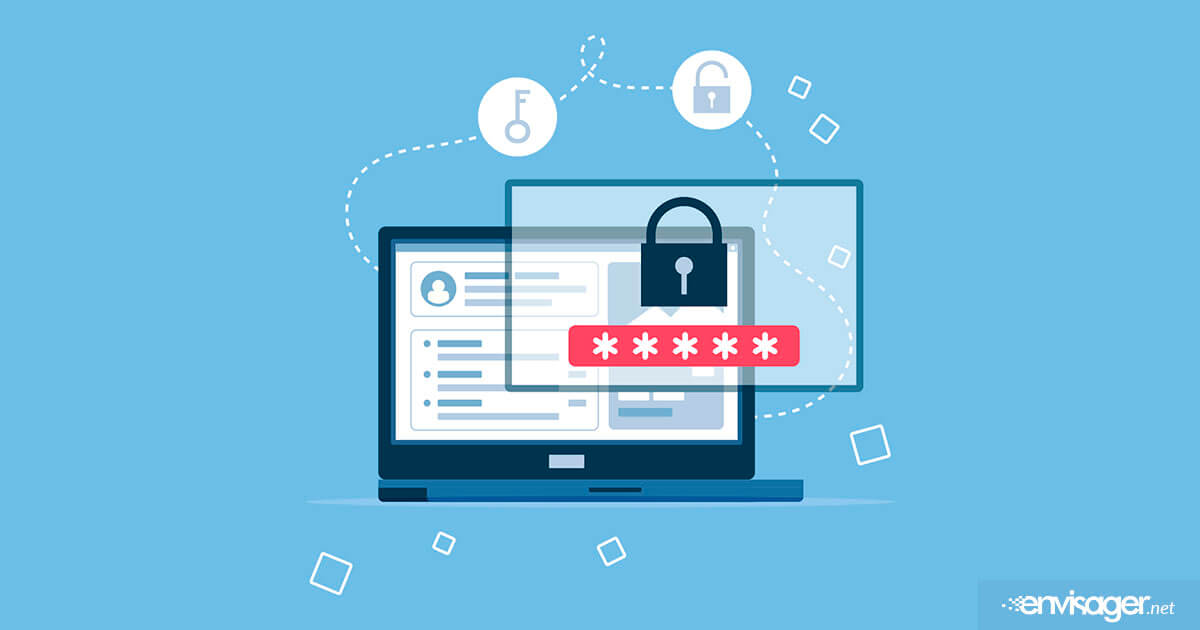How Small Business Can Overcome Digital Marketing Cyber Security Challenges

Digital marketing is an important component of every small business marketing mix. But sharing data that should be kept private with other parties creates digital marketing cyber security challenges.
With cyber security, small businesses protects its data from hackers and secures business information online. And advanced technologies allows organizations to secure their data with different systems.
We want to keep small business digital marketers current on the latest security issues online. That said, below are areas where digital marketing cyber security challenges are experienced.
TABLE OF CONTENTS
The Importance Of Cyber Security In Digital Marketing
Every year, organizations spend millions of dollars to keep their companies safe from cyber threats. Even then, the risks are still ubiquitous. For example, in 2017, WannaCry attacked computers running Windows 7. This was devastating for hundreds of thousands of Microsoft Windows 7 users.
When the malware attacked computers, users woke up to find ransom demands, a Bitcoin wallet, and a countdown regulator. This kind of attack can happen with any business, and every business needs to be ready.
Another security issue related to digital marketing is the fact that it reaches a broad audience. Unfortunately, most small businesses do not pay much attention to the risks cyber security issues pose. Something as simple as a USB drive from outside the offie or a social media post can wreak havoc.
Essentially, cyber security should always be a top concern for digital marketers. Ignoring security protocols can have dire consequences on everything from unhappy customers to your company’s bottom, and beyond.

Managing WordPress Websites
One of the easiest points of entry for a hacker is to exploit outdated software on websites. This is especially true for sites built on content management systems like WordPress. Running legacy software such as outdated versions of plugins, WordPress core and themes is akin to leaving your house door open.
Most theme developers and plugin creators provide applications updates frequently. Oftentimes, this is to patch files which were found to have security vulnerabilities. Therefore, marketers should take note and update their software accordingly.
The latest WordPress version offers an automatic update feature for plugins. If keeping current with the latest updates is too much of a task, you could try that feature. However, keep in mind that just because there’s a plugin update available, it doesn’t always mean you should update. Let me explain.
Some theme developers offer premium plugins as part of the theme package. The developers will then disable the ‘enable auto updates’ for those plugins. If they don’t and you update those plugins, they may not be compatible with your theme and therefore cause site issues.
If you’re unsure about what to update and when, Envisager Studio offers WordPress website maintenance. In addition to keeping your backend up-to-date, we also update your site pages. We’re happy to help. Get in touch with our WordPress team or call (858) 874-6528 for assistance.

Content Marketing Distribution
Content marketing aims to attract audiences interested in your business. It’s goal is also to convert them to paying customers or entice them to take action. However, there are security vulnerabilities that come with such content.
It’s no secret that blog posts help small business market their products and services to a wide audience. Content management systems, WordPress especially, is an ideal platform which helps easily upload, edit and feature your content.
However, as eluded to above, hackers are becoming more familiar with WordPress and its imperfections. And unbeknownst to site owners, your site could be used to distribute malware to unsuspecting users. This will not only damage your business reputation, but also put site visitors at risk.
Content management systems (CMS) works for businesses of all sizes, allowing them to customize their content to their audiences’ needs. But they are also “the” loophole to cyber security challenges that a small business face.
CMS platforms are prone to attacks. Attackers use distributed denial-of-service (DDoS) attacks (and others) to compromise your system’s infrastructure. These attacks might result in data exposure or data breach.
CMS packages all update the security protocols in the software. But the onus is on the site owner to maintain security practices when using any CMS platform. Additionally, administrators need to regular the creation of user accounts.
When creating accounts for content marketing, enforcing the creation of strong passwords is extremely important for account security.

Email Marketing Loopholes
Email marketing is a crucial part of digital marketing. The digital marketing cyber security challenges come in the form of phishing.
For instance, Anthem Health Insurance experience a cyber attack in 2015 where hackers accessed more than 80 million users’ details. The attackers used a phishing email to accomplish this monstrosity.
Phishing scams are not new. However, as more companies make email marketing their main marketing channels, the risks of phishing attacks increases. Sadly, these attacks mostly target small businesses that are unknowledgeable regarding the risks, but large companies are also not safe.
The thing with email marketing is that hackers attack vulnerable customers. The attackers might use attachments and hyperlinks to open the door to the cyberattacks.
Small business digital marketers can reduce the risks of email hijacking by:
- Making sure that the internet service provider and the servers are updated.
- Employing software that provides security for all email marketing needs. These applications ensure that all email marketing emails only go to the desired audiences. Plus, they also provide encryption to reduce attacks.
- Educating your marketing team and customers on how to identify phishing emails.

eCommerce Transaction
Vulnerabilities in eCommerce systems make it challenging for digital marketers to convert potential customers. Weak links occur in identity theft and systems security flaws. Needless to say, when consumers fear that their data is not safe, they are reluctant to take action.
The success of every business relies on providing an authentic eCommerce customer experience which includes customer acquisition, retention, and growth. Therefore, marketing teams have to ensure that these elements are the primary focus of every marketing strategy.
A good place to start is by using secure sockets layer (SSL) protocols. Albeit not user friendly, two-factor authentication can also be implemented to assuage customers’ fears.
Keep in mind that multiple security strategies may not guarantee a secure transactional process. But it does help provide a robust security system for eCommerce applications. In fact, it dissuades most attackers from launching attacks.
You may also enjoy reading: A Quick Guide On Website Architecture and Design

Darrel Carpenter
DIRECTOR OF DEVOPS
Darrel brings to the table 10 years of education, more than 20 years of engineering experience, and 3 decades of tireless tinkering. He is our Systems Administrator, Network Engineer and builds all the infrastructure that powers our client’s websites, emails and more. In his off time, he enjoys writing about writes about servers, content management systems, cloud computing, web hosting, and more.


